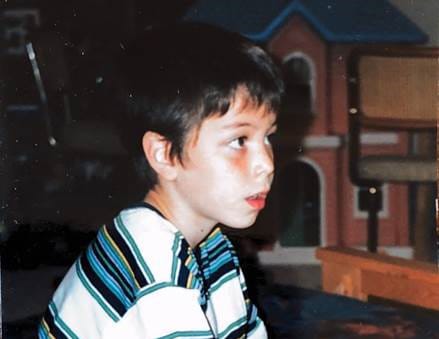By Sebastien, Renascent Alumni
I started to think I might have a drinking problem when I was twenty years old. I was morose and reckless when drinking, even more so than my peers. By twenty two, I kept a bottle of alcohol in my desk.
My experience with drinking reminds me much of the developed world’s experience of global warming. Something will happen, something scary. An Australian wildfire will burn ten million hectares, a cyclone will rip through Zimbabwe, and each time the communal sentiment is: things can’t continue like this. Yet immediate, radical change seems like something equally unthinkable. Things quiet down for a little while, and it continues.
I managed to scrape through graduate school with relatively few incidents. I was drunk every evening. I would often start having tremors and sweating if I hadn’t had a drink in more than twelve hours. If I had to be functional in the morning, I would usually have a couple shots. In every aspect of my life, I was doing the bare minimum to be considered a participant.
I had tried a few different things here and there. I had done an outpatient recovery program, seen an addiction counselor, spent a year talking to a psychiatrist, gone to a dozen or so different Alcoholics Anonymous (A.A.) meetings. Nothing stuck, or even came close, really. I felt so distant from my life, from a reason to live, that I think it was hard to want to fight for change.
Getting Lasting Help
The second time I went to detox, I was living with my partner. She was a very supportive figure in my life who was less mystified by addiction than most “normal” people. I was extremely lucky in this regard. After the detox, I was scheduled for an in-patient program. I was so afraid – more than I had ever been before, or have been since. I found out in the detox facility that, because of COVID-19, I would need to quarantine alone for a week, and that there would be no visits from friends or family during that time. Either that, or the inpatient program would not be available for me. I broke down completely. It was simply more than I felt I could handle. I was almost ready to cancel everything, to go back home without a plan, back to drinking.
One of the nurses had some information on outpatient facilities and Renascent was able to book me in. The situation was salvaged. I did the Virtual Intensive Treatment Program, and I think that having a regiment, a place to be accountable, helped substantially in my recovery. Renascent was a boon for providing me with structure and a network of gentle and supportive people also figuring out recovery.
My Approach to Spirituality
A.A. still has never really clicked with me. I’m a secular person and I’m what you might call spiritually illiterate. Clinicians and 12-step group leaders have different strategies for getting around “the God thing.” Most often, I’d hear them suggest that “a Higher Power” (in Step 2) is open to interpretation. A Higher Power can be the mountains, or the group itself, said one counsellor. After all, Step 3, “made a decision to turn our will and our lives over to the care of God as we understood Him,” is very carefully worded, allowing for all forms of religion and spirituality. However, the 12-step Program is still asking you to make contact with something intangible, something vaguely mystical, something cryptically Greater than ourselves. If you find this talk of “Higher Powers” off-putting, or even just inaccessible, then perhaps I can speak to your concerns.
Even if we assume nothing else, A.A. and 12-step recovery programs are a community. They are a community with a common goal and some characteristics a little reminiscent of a congregation; the gathering, the ritual, and “the God thing.” People need positive communities to keep them going. The more accessible, active and populated that community, the better. If you feel like you are alone, 12-step programs are a way to be less alone. This, in and of itself, can be life-saving.
In theory, you could go through all of the 12 Steps, except amends, while on a desert island, with nothing but the Big Book and the spiritual teachings of your choosing. Of course, it would be an absurd undertaking. Addiction, like any other horrible life-experience, demands that you call on the support of other human beings. I never found salvation through God. I found it, and have always found it, through people.
If I could give my past self advice, it would probably just be this: the hardest part is starting out. Every single hour, every single day, it will get a little easier for you. You have a sense of this already, but you haven’t internalized it. Try to. Then, both slowly and all at once, there will come blithe days where you are lost in the finding of your way, absorbed in the carving of a path, in the intricacies of your sweet little life. And they call this serenity.

